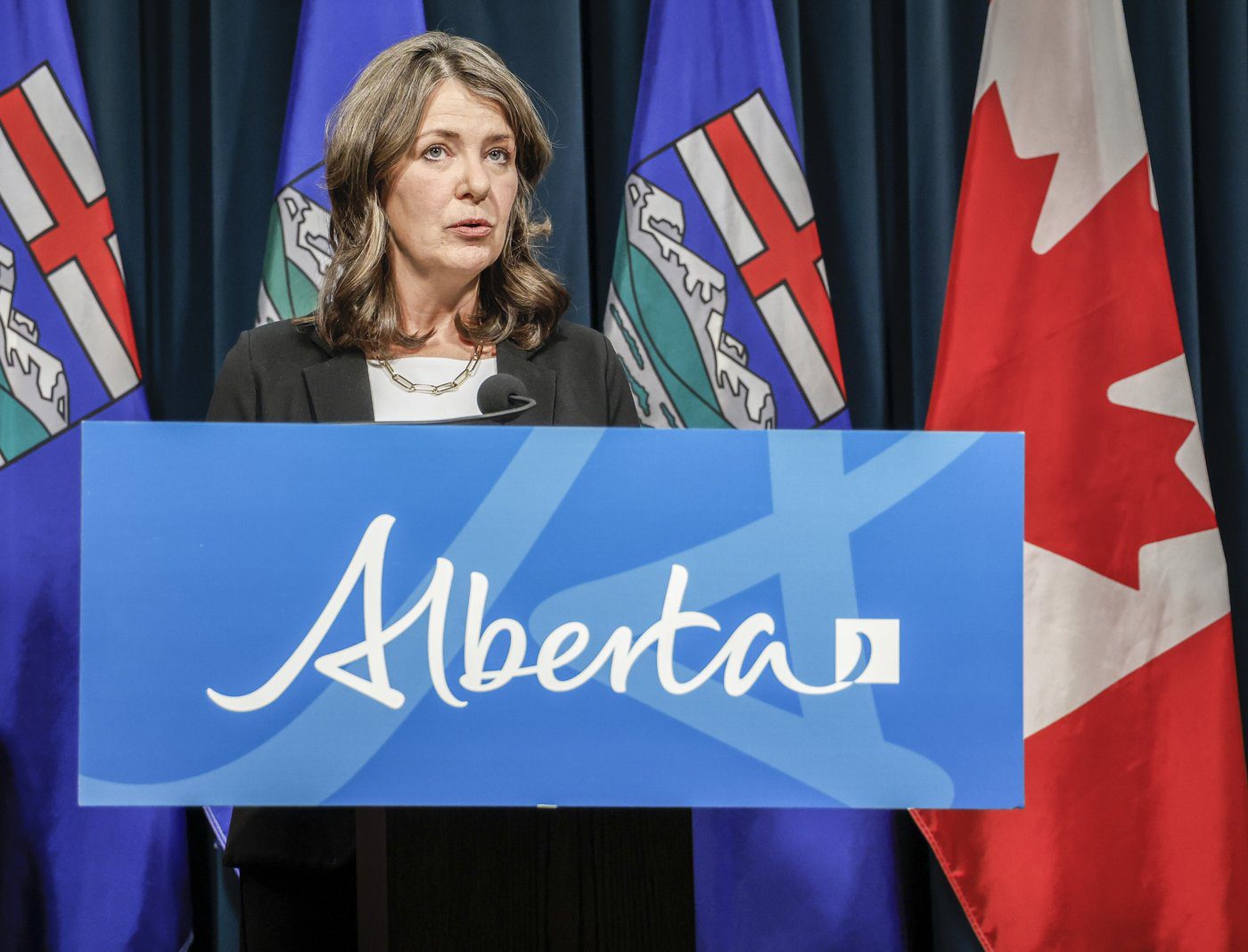Alberta Premier Danielle Smith says Canada recently losing its measles elimination status is concerning, but her government might not have many other options on the table to help get it back.
Smith, at an unrelated news conference in Calgary, said the highly contagious disease is hard to control, especially since people can travel freely from province to province or to Alberta from around the world.
“I think it’s up to everybody to be vigilant in trying to make sure that this disease doesn’t spread,” Smith said Friday.
“That’s why we made sure everyone knew when an outbreak occurred or when a case was identified, we put (it) on our website so they could see exactly what location, judge their own level of risk (and) if they saw symptoms, (were) able to get it addressed right away.”
While almost every province has reported measles infections this year, Alberta and Ontario have led the way in overall cases. Alberta has reported nearly 2,000 cases since March, while Ontario has had close to 2,400 confirmed and probable cases since the fall of 2024.
More than 150 people have been hospitalized in Alberta. The province reported its first death last month when an infant died shortly after birth as a result of the mother contracting measles during pregnancy.
The Pan American Health Organization announced Monday it had revoked Canada’s measles elimination status after close to three decades, as cases of the same strain had been circulating for over a year.
To get the status back, Canada will need to see no transmission of the same strain for at least one full year.
Smith said her government did what it could to try and slow the spread since Alberta’s outbreak started, and pointed to the successes of the province’s vaccine campaign.
She noted many of the nearly 2,000 cases reported in Alberta so far this year have been in specific communities with lower vaccination rates, namely Mennonite and Hutterite communities.
She said the province targeted those areas with its vaccine campaign and saw 50 per cent increases in uptake in some areas.
Asked what Alberta could do to help Canada regain its status, Smith pointed to the vaccination campaign.
“(Measles) can have devastating impacts, especially on young kids,” Smith said. “So we want to make sure that everyone knows that (vaccines are) available.”
Opposition NDP health critic Sarah Hoffman told reporters the United Conservative government should have ensured Alberta had a permanent chief medical officer of health a year ago, and made sure that person can speak publicly to make sure everyone gets the information they need.
Alberta technically hasn’t had a permanent chief medical officer since 2022, when Smith followed through on a campaign promise to fire Dr. Deena Hinshaw over frustrations with COVID-19 health measures.
Dr. Mark Joffe filled the role on an interim basis until this past spring, choosing to leave after his contract expired. The province named Dr. Sunil Sookram as an interim successor shortly after.
“The best day to act would have been over a year ago. The second-best day is today and we still don’t have a permanent chief medical officer of health,” Hoffman said.
Hoffman also noted the NDP has been calling for increased awareness about tuberculosis, where in Edmonton, officials this week declared an outbreak following lab testing in October that confirmed two people were infected with the same strain, suggesting local transmission.
“Tuberculosis, measles, COVID immunizations — this used to be the basic work of government to make sure that people had information (and) took away barriers for people who want to immunize themselves,” Hoffman said.
This report by The Canadian Press was first published Nov. 14, 2025.
— With files from Rob Drinkwater in Edmonton.
Jack Farrell, The Canadian Press





